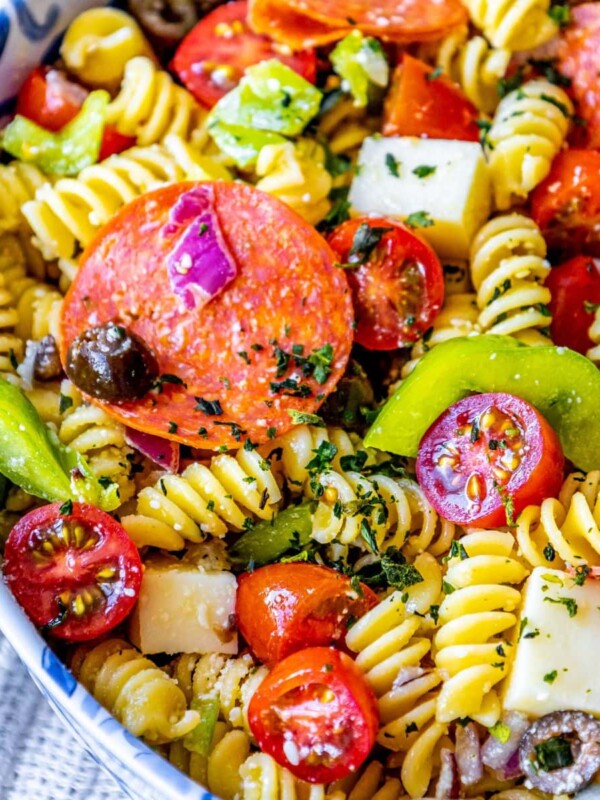Corn Fed Iowa – Touring America’s Farms
Nov 18, 2019, Updated Feb 03, 2023
This post contains affiliate links. Please read our disclosure policy.
How Iowa’s Corn, Pork, and Cattle family farms are feeding America and providing jobs across America.
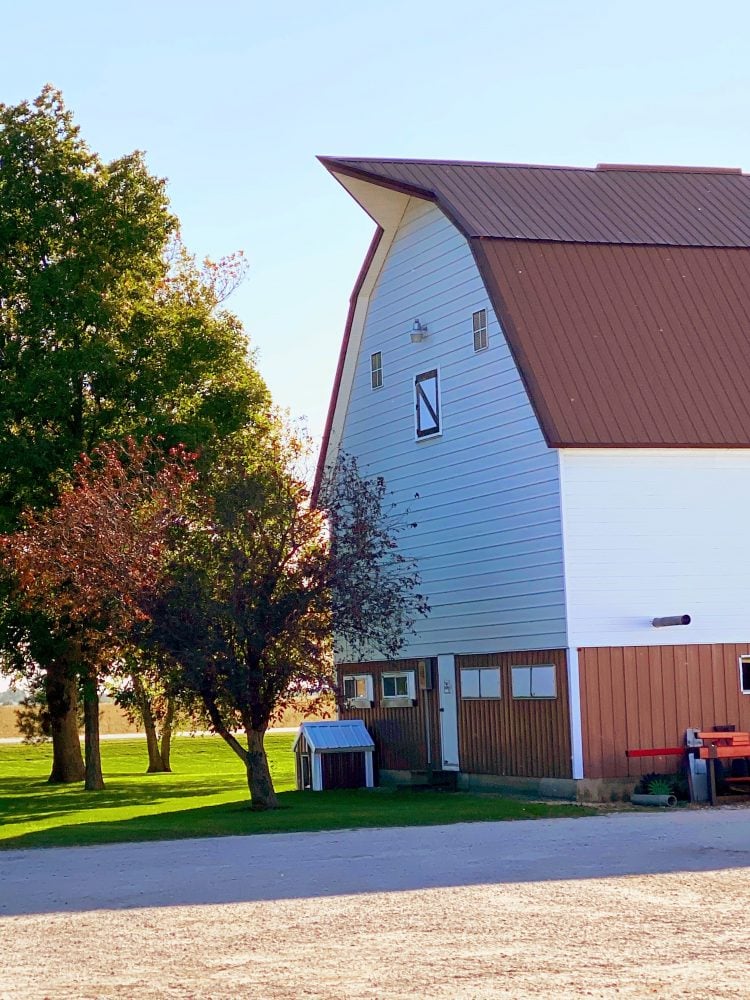
I was invited to tour some of Iowa’s Corn, Beef, and Pork farms to learn about how Iowa farmers are helping to feed America – and the world – and clear up some food myths about farming I had heard.
It was a truly eye-opening trip – I learned all about GMOs, Ethanol production and how it impacts our air quality, food safety, and food security across America – and more about how family farms run.
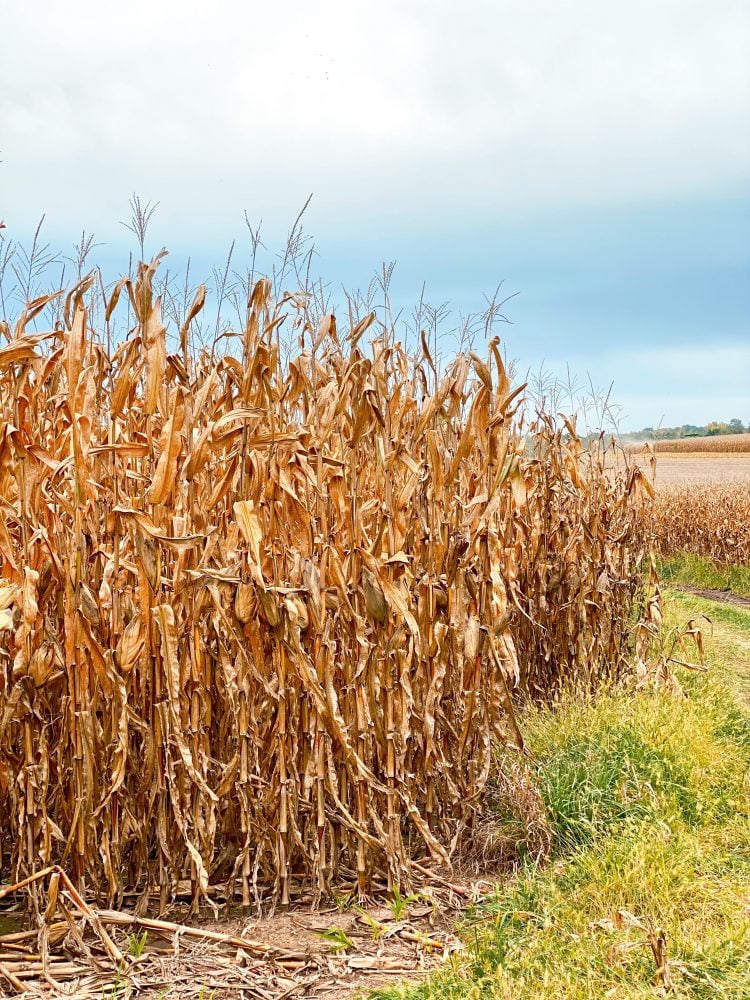
The trip was amazing – there is so much misinformation about America’s farmland, which is really interesting to me as a food writer because I wish everyone could connect with the farmers that bring food to our tables.
I hope you’ll enjoy some of the interesting things I learned from my Corn-fed tour through Iowa… and consider not only supporting your local family farms, but learning more about how modern farming practices are trying to preserve a rural way of life – as well as protect the environment, reduce waste, and increase America’s food security through access to healthy, affordable foods.
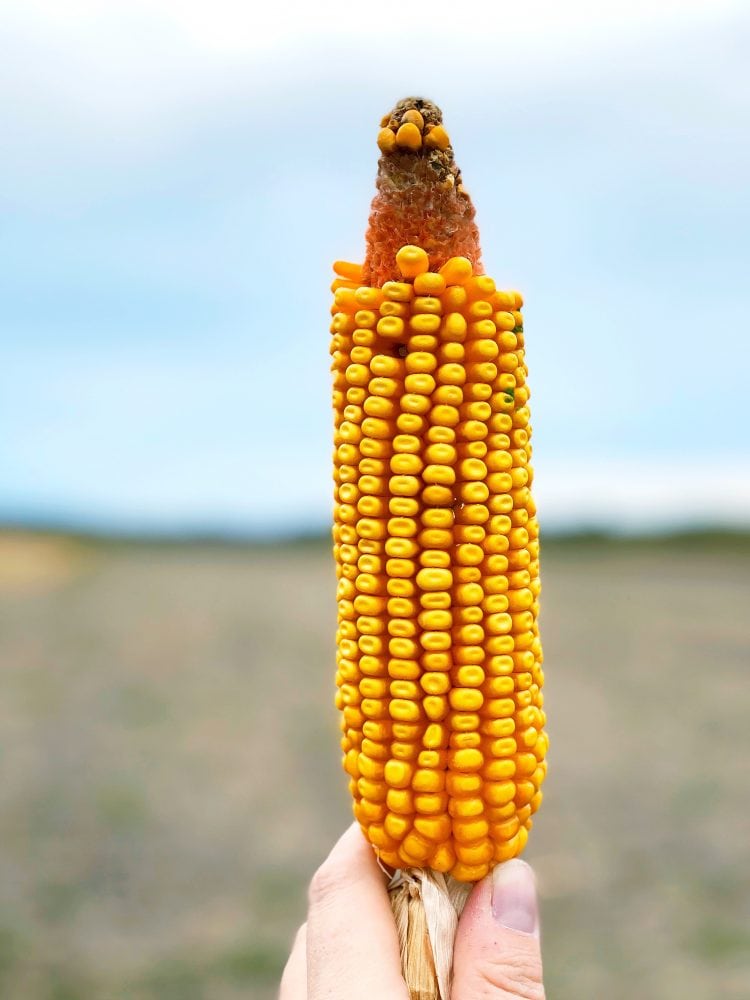
How Farmers Promote Conservation
Safe, clean waterways, soil, and grasslands is vitally important – for our communities, but also for family farmers.
Most farm families have benefitted from advances in technology to help them use less water, less chemicals or pesticides, and produce more food and feed.
While you might hear things like moving off meat to save carbon emissions – but advancement in farm technology has actually significantly reduced emissions.
Cattle farming currently only contributes to 2% of America’s emissions – transportation making up almost 26% of our emissions, which can further be reduced with increased ethanol consumption.
Cattle farming in Iowa, and across America, produces anywhere from 10 to 50 percent less of a carbon footprint than beef from other nations – making it a more responsible choice than it is given credit for!
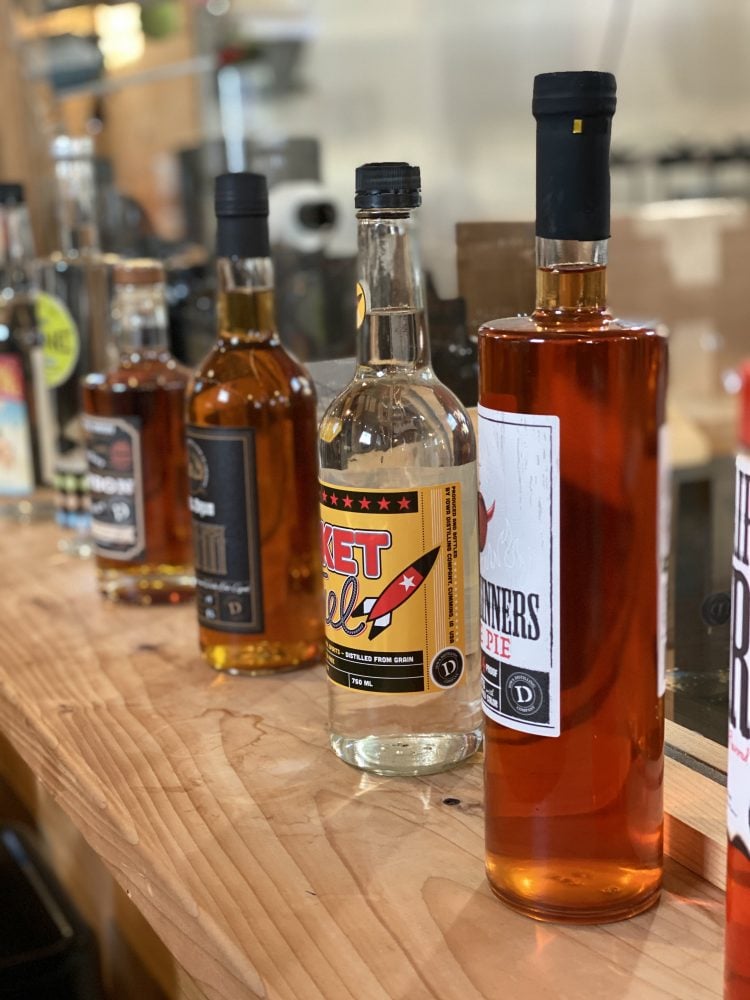
As farm technology continues to advance, many farmers have been able to adjust their operations to use less manpower – but also less natural resources.
Water, fertilizer, and pesticides cost a lot of money – by working with new technology to monitor soil health, water tables, and coming up with precision planting plans have helped farming reduce their impact and keep farmland healthy – while keeping costs down.
Many farmers in Iowa rent land from families who aren’t farming anymore – keeping Iowa’s farmlands in family farm operations as generational farming declines with more young workers heading into city jobs and away from farming.
While it might take a lot of machinery, many farms “look” big with a fraction of the people of a corporate farm.
Technological advances help families keep farming, as machines can handle the work of a group of people.
Just because you see a farm with a ton of equipment, doesn’t mean it’s a corporate farm – it’s very likely a family! (And remember the massive pricetags that come along with combines, tractors, etc. – that farming families need to cover!)
In fact, 91% of America’s beef farms and ranches are family owned – not corporate owned!
Quite frankly, I realized quickly that without combines, tractors, advancements in seed technology, GMO technology – families would NOT be able to operate a farm AND provide America with an affordable and safe food supply.
It is really important to me that my food, to the largest extent possible, comes from family farms.
I know the struggles family farmers face, and know they sacrifice to provide the best quality food they can to set themselves apart.
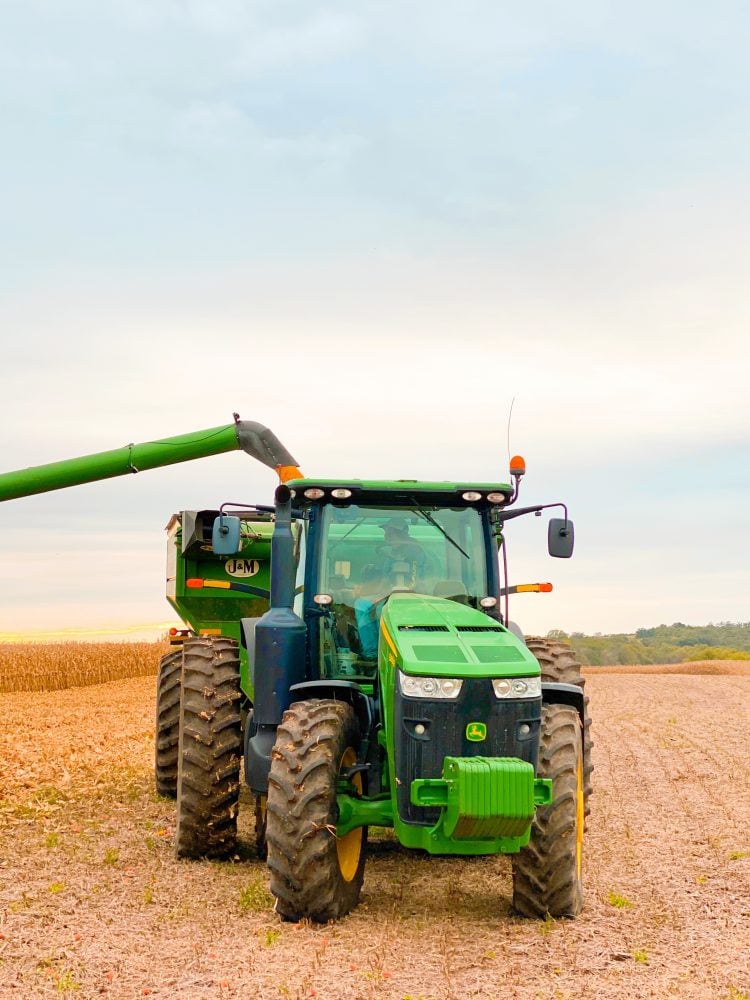
How Farmers Fight Food Insecurity
It was really exciting to get to see up close and personal just where our food supply starts in Iowa – and how advancements in technology, including the use of GMOs, has helped combat food insecurity across America.
Americans are incredibly lucky to live in a country with widespread access to healthy, safe, and affordable food – but there are many people across America, and the whole world, who worry about making ends meet enough to put a hearty meal on the table.
While farmers work to feed America, as well as provide for their families, there isn’t an abundance of wealthy farmers.
Most farming families invest returns from crops back into equipment, seeds, animals, and their land – so it’s important for American farmers to make the most out of every seed, every plot of soil, every drop of water – to make food reliably safe, easy to access, and affordable for families.
American cattle farmers, many in Iowa, make up 18% of the world’s beef supply – but they are able to source that from only 8% of the worlds cattle! That is amazing efficiency, thanks to advancements in animal welfare and health, better animal nutrition, and improved animal genetics.
Quite simply – modern farming has helped corn, pork, and cattle farms feed more people, with less animals, and less emissions.
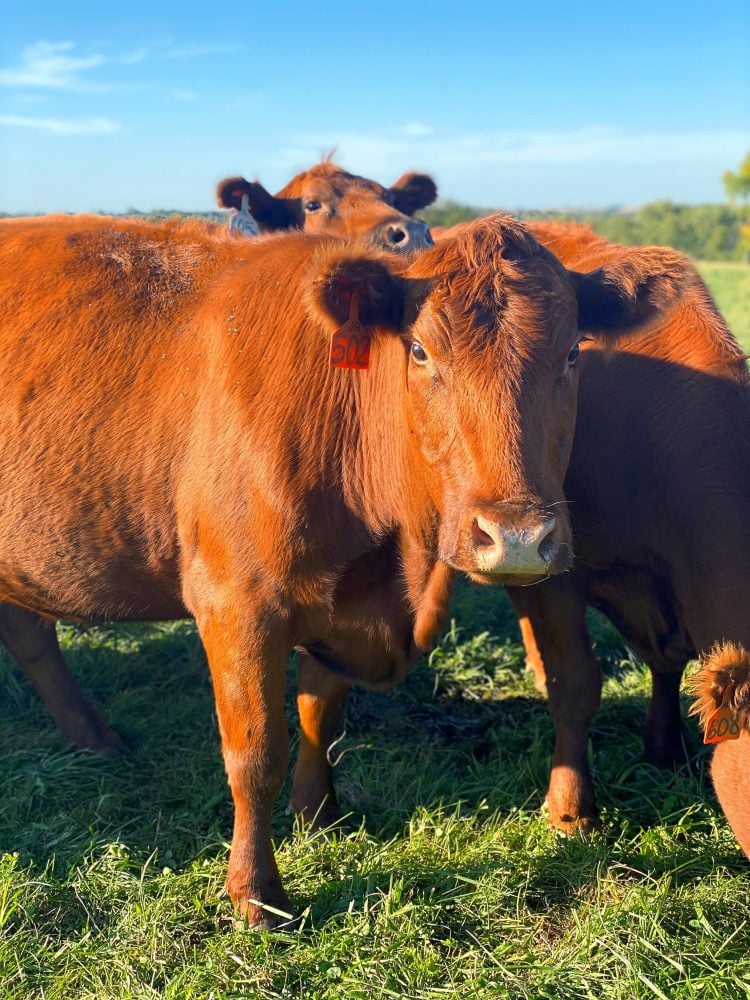
How Corn Farmers Can Fight Air Pollution
Did you know original cars ran on clean burning fuel?
And that a possible solution to air pollution is grown every year right in America’s heartland?
What is this solution? Ethanol!
I will admit I am NOT in any way a car person – so I hadn’t really looked into ethanol a lot.
But I was really interested in learning about how ethanol works in cars, and how it can combat emissions.
It was really interesting to learn about how using ethanol – a clean burning fuel – could solve a lot of our pollution problems, especially in the developing world – but since the demand from consumers hasn’t fully caught up yet, we haven’t improved as much as we can.
Ethanol could help clean up some of the pollution caused by travel – and is a great made-in-America solution for our energy needs!
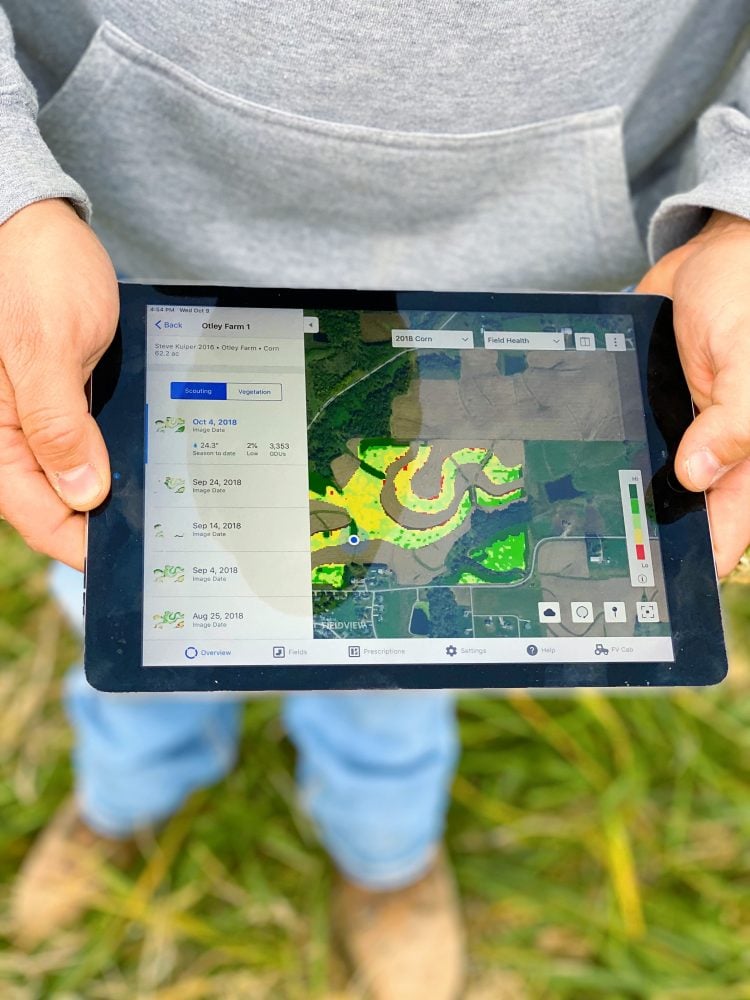
Where We Visited in Des Moines
I’d like to thank the following partners for an amazing time in Des Moines Iowa – if you’re looking for things to see and do in Des Moines – or great places to eat in Iowa – please check out the spots we got to visit along our tour!



